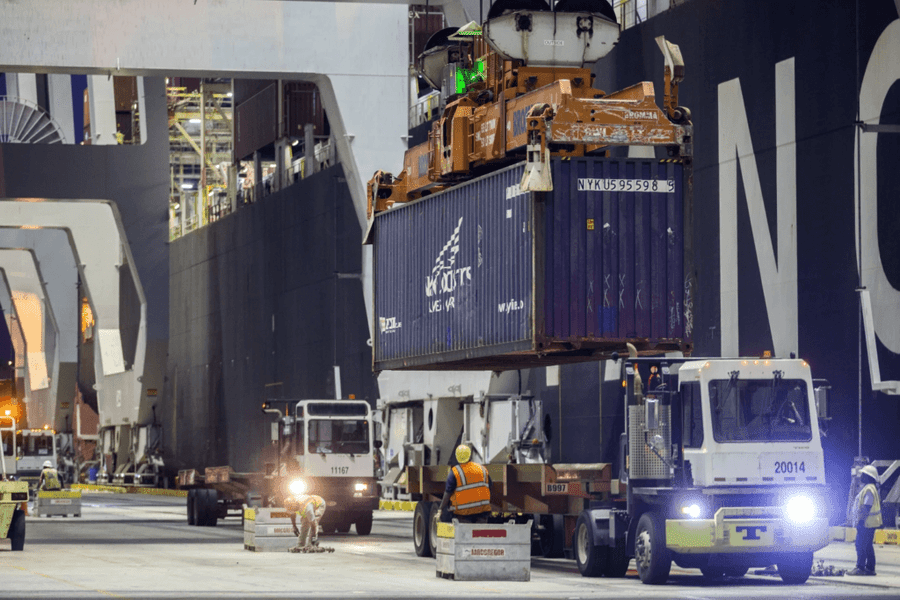East coast dockworkers strike looming

U.S. ports from Maine to Texas could shut down on Tuesday if a union representing about 45,000 dockworkers continues with a threatened strike.
A lengthy shutdown could raise prices on goods around the country and potentially cause shortages and price increases at big and small retailers alike as the holiday shopping season approaches—along with a tight presidential election.
“First and foremost, we can expect delays in the market. And those delays depend on really what the commodities are and priorities at the ports and how quickly things move,” said Mark Baxa, president of the Council of Supply Chain Management Professionals. The International Longshoremen’s Association is demanding significantly higher wages and a total ban on the automation of cranes, gates, and container-moving trucks used in loading or unloading freight at 36 U.S. ports. Those ports handle roughly half of the nations’ cargo from ships.
The contract expires Tuesday between the International Longshoremen’s Association and the United States Maritime Alliance, representing the ports. The two sides haven’t held negotiations since June. A strike by the ILA workers would be the first by the union since 1977. While any port can handle any goods, some ports specialize in handling goods for a particular industry. The ports that would be affected by the shutdown include Baltimore and Brunswick, Georgia, the top two busiest auto ports; Philadelphia, which gives priority to fruits and vegetables; and New Orleans, which handles coffee, mainly from South America and Southeast Asia, various chemicals from Mexico and North Europe, and wood products such as plywood from Asia and South America.
Other major ports affected include Boston, New York/New Jersey, Norfolk, Virginia, Wilmington, North Carolina, Charleston, South Carolina, Savannah, Georgia, Tampa, Florida, Mobile, Alabama, and Houston.








